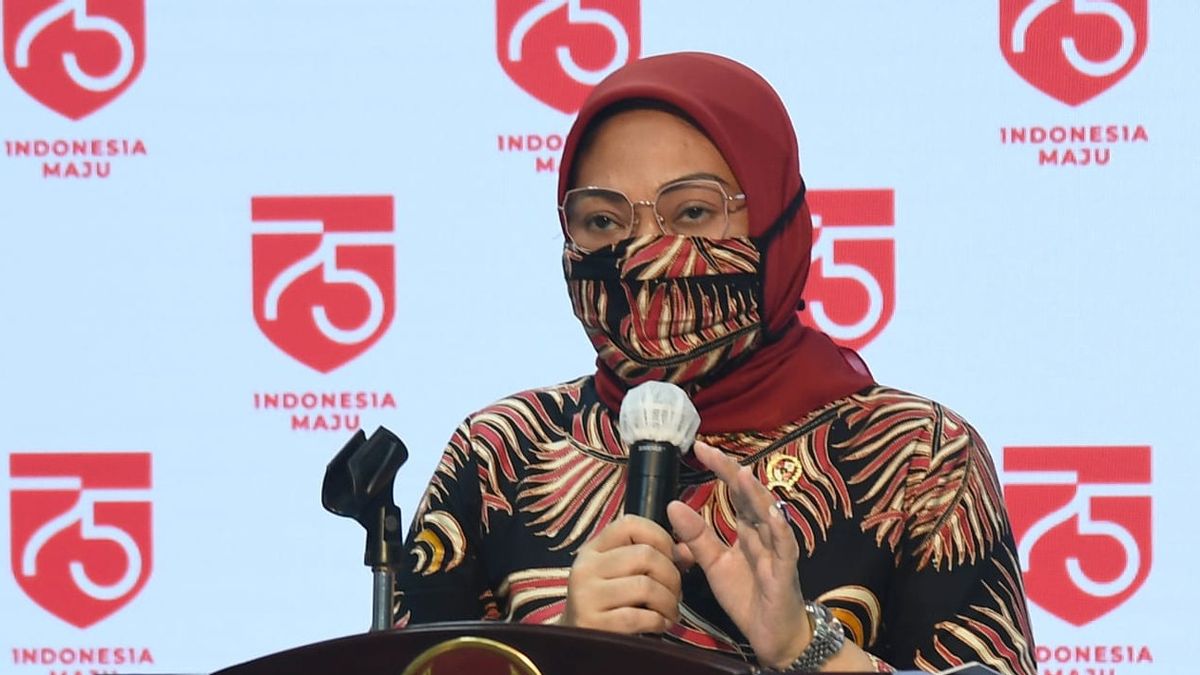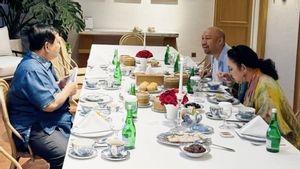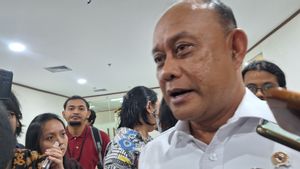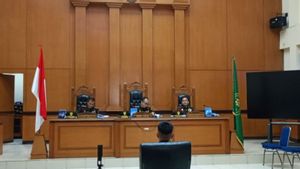JAKARTA - The House of Representatives (DPR) today officially passed the Work Creation Omnibus Law Bill (RUU) despite the flood of rejection from various parties. As a result, the union or laborers threatened to hold a national strike on October 6 to 8.
Responding to this, Minister of Manpower Ida Fauziyah through an open letter asked the union or workers to consider this action. This is considering the COVID-19 pandemic that is still ongoing today.
"Regarding the national strike plan, I ask that it be calmed down again because the situation is clearly not possible to take to the streets, to gather. The COVID-19 pandemic is still high, there is still no vaccine. Reconsider the strike plan," he said, in a written statement. received by VOI, Monday, October 5.
Ida said, since the beginning of 2020, his party has started dialogue with workers about the Job Creation Bill, both formally through tripartite institutions, and informally. According to Ida, the aspirations of a workers' or labor union have been heard by the government, and have been understood, even included as part of the bill.
"I am trying to find a balance between protecting those who have worked and providing employment opportunities to millions of people who are still unemployed, who have no income and pride. It's not easy, but we do our best," he explained.
Furthermore, Ida suggested that labor unions or workers who refuse the ratification of the Omnibus Law on Employment to read the bill in full.
"There are so many aspirations of our friends that we accommodate. Regarding PKWT, outsourcing, termination requirements, all of them still refer to the old law. The issue of wages also still accommodates the existence of a UMK. If you want to be 100 percent accommodated, that's not possible. But read the result. It will be seen that our side is very bright, "he said.
Ida admits that he understands the disappointment of labor unions or workers. This he himself accepted. However, Ida asked that the strike not be carried out. Moreover, part of the wishes of labor unions or workers has been accommodated by the government.
"Because many have been accommodated, the strike is irrelevant. Forget the plan. Don't take the risk of endangering the lives of you, your wife, husband and children at home. We must keep them healthy," he said.
Not only that, Ida also opened a space for dialogue for trade unions or laborers who did not accept the decision to ratify the Omnibus Law on Cipta Kerja. This, said Ida, is better for finding the midpoint of the existing problems.
"I invite us back to sit together. With the spirit to protect those who are working and give jobs to those who are still unemployed. I am eagerly waiting for the presence of friends at the dialogue table, not on the streets. I believe we can always find a middle ground that calms each other down. "We are trying to light a candle and not blame the darkness," he explained.
When met separately, the Coordinating Minister for the Economy Airlangga Hartarto casually responded to the rejection of labor unions or workers. He said that not all rejected only some groups.
"Yes, there are some independent workers from various groups. Of course there are those who have expressed support," he said.
[/ read_more]
Regarding the national strike, Airlangga said that under current conditions it is important for all parties to keep the situation conducive.
"In the midst of the COVID-19 pandemic, especially when we see the current economic situation, it is important for us now to maintain conduciveness and continue to support our means of production," he explained.
Previously, the Confederation of Indonesian Workers Unions (KSPI) said that there were 32 federations and confederations of trade unions and several other trade union federations ready to join in a national simultaneous demonstration on 6-8 October 2020 which was named a national strike.
President of KSPI Said Iqbal said that the national strike was carried out in accordance with Law (UU) No. 9 of 1998 concerning Freedom of Expressing Opinions in Public and Law No. 21 of 2000 especially Article 4 which states that one of the functions of trade unions is to plan and carry out strikes.
The plan for 2 million workers to participate in the national program includes industrial sectors such as chemical, energy, mining, textiles, garments, shoes, automotive and components, electronics and components, iron and steel industry, pharmaceuticals and health, printing and publishing, tourism industry, cement industry. , telecommunications, transportation workers, port workers, logistics, banking, and others.
As for the area distribution of 2 million workers who will take part in the national strike, including Jakarta, Bogor, Depok, Tangerang Raya, Serang, Cilegon, Bekasi, Karawang, Purwakarta, Subang, Cirebon, Bandung Raya, Semarang, Kendal, Jepara, Yogjakarta, Surabaya, Sidoarjo. , Gresik, Mojokerto, and Pasuruan.
Next are Aceh, Padang, Solok, Medan, Deli Serdang, Medium Bedagai, Batam, Bintan, Karimun, Muko-Muko, Bengkulu, Pekanbaru, Palembang, Bandar Lampung, and South Lampung. In addition, national strikes will also be carried out in Banjarmasin, Palangkaraya, Samarinda, Mataram, Lombok, Ambon, Makassar, Gorontalo, Manadao, Bitung, Kendari, Morowali, Papua and West Papua.
In the national strike action later, workers will voice reject the omnibus law of the Job Creation Bill, among others, there will still be UMK without conditions and UMSK should not be lost, the value of severance pay does not decrease, there should be no non-permanent contracts or contract employees for life, no lifetime outsourcing Working time should not be exploitative, leave and wage rights to leave must not be lost, contract and outsourcing employees must receive health insurance and pensions.
[/ read_more]
The English, Chinese, Japanese, Arabic, and French versions are automatically generated by the AI. So there may still be inaccuracies in translating, please always see Indonesian as our main language. (system supported by DigitalSiber.id)













